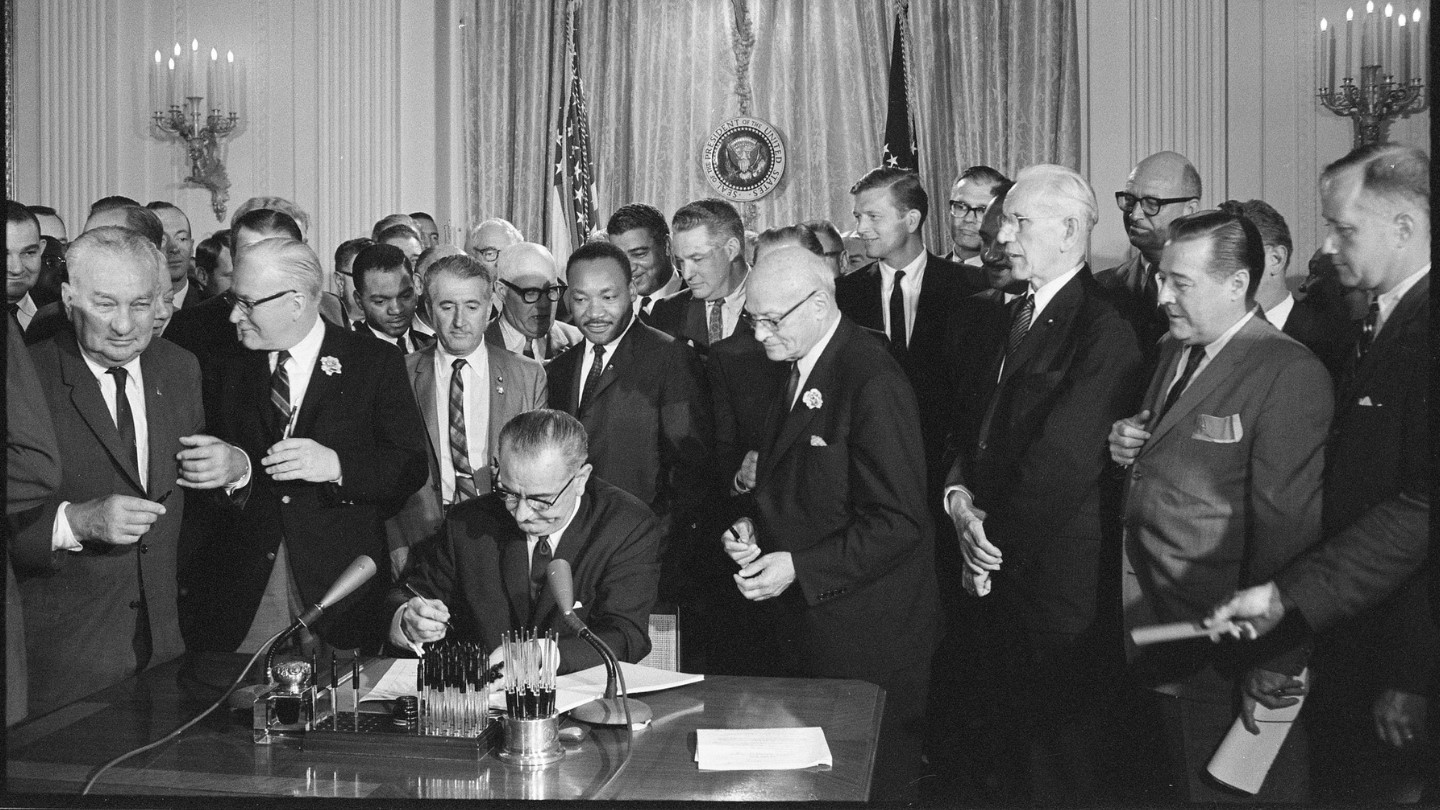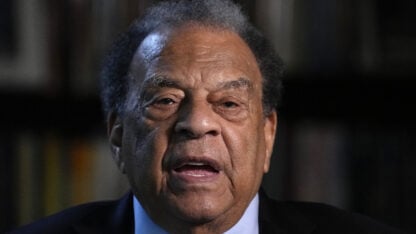Andrea Young was a child when she and her family moved from New York to the Mozley Park neighborhood in Atlanta. Young, the daughter of civil rights activist, former Atlanta mayor and UN ambassador Andrew Young, can still remember vividly how different things were.
Black people faced discrimination and a myriad of racial restrictions. She says public spaces were segregated, and Black people could be told, at any given time, what they could and could not do.
Her story mirrors the stories of Black people living in the segregated South before President Lyndon B. Johnson signed the Civil Rights Act into law.
Tuesday marks 60 years since the landmark legislation outlawed discrimination based on race, sex, religion, color or national origin. Civil Rights icons such as Dr. Martin Luther King Jr. and John Lewis were in attendance for the history-making signing during a White House ceremony.
On Tuesday’s edition of “Closer Look,” Young, who now serves as the executive director of the ACLU of Georgia, reflects on the successes of the law and the ongoing challenges that Black people still face 60 years later, including structural racism, the growing wealth gap between whites and Blacks and mass incarceration.









